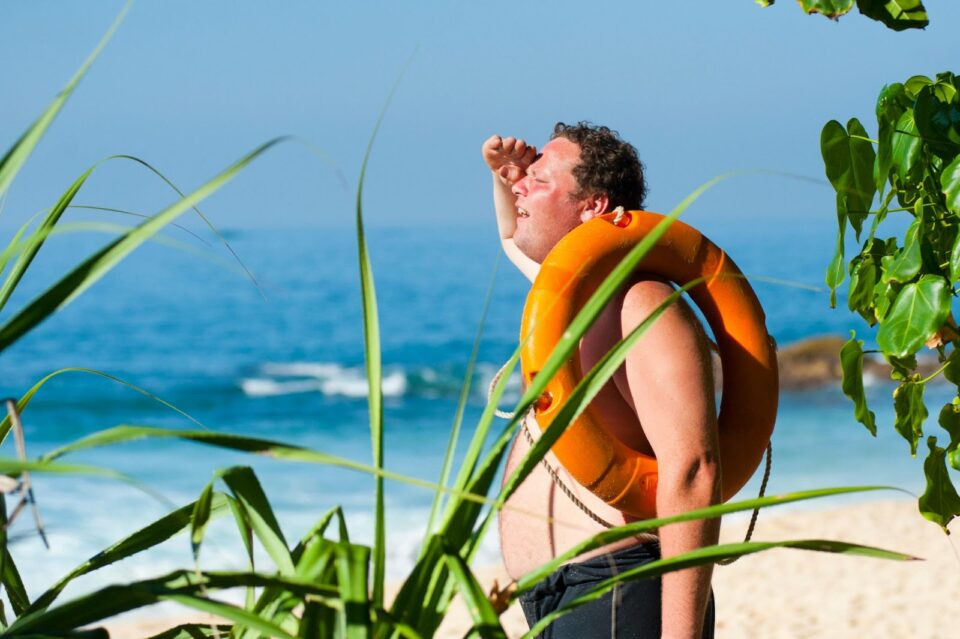Becoming a lifeguard is not just about having a summer job at the pool; it’s about ensuring the safety and well-being of those around you. A lifeguard’s role is critical in preventing accidents and responding swiftly in emergencies. If you’re considering this career, the first step is obtaining a lifeguard certification. This article will guide you through the process, its importance, and why the American Lifeguard Association is your best choice for certification.
What is lifeguard certification?
A lifeguard certification is a credential that proves you have completed the necessary training to perform the duties of a lifeguard. This certification ensures that you have acquired the essential skills and knowledge, such as CPR, AED, first aid, and water rescue techniques. Certification programs are typically offered by recognized organizations like the American Lifeguard Association, which provide comprehensive training that meets national standards.
Why is lifeguard certification important?
Lifeguard certification is essential for several reasons:
- Legal Requirement: In many places, it is legally required to be certified to work as a lifeguard. This certification serves as proof that you are qualified and capable of performing the duties required in emergency situations.
- Skill Proficiency: Lifeguard certification programs ensure you are proficient in the skills necessary to save lives. From performing CPR to handling spinal injuries in the water, the training is designed to prepare you for real-world scenarios.
- Job Opportunities: Many employers will not even consider applicants who do not hold a valid lifeguard certification. Being certified can open doors to job opportunities in various aquatic facilities, including public pools, water parks, and private resorts.
- Public Safety: As a certified lifeguard, you play a crucial role in maintaining the safety of swimmers. Your presence alone can prevent accidents, and your skills ensure that you can respond effectively if an incident occurs.
Lifeguard Certification: Your Pathway to a Rewarding Career

The Certification Process
The process of getting certified typically involves several key steps:
- Prerequisites: Before enrolling in a certification course, you need to meet specific prerequisites, such as a minimum age requirement (usually 15 years old) and the ability to swim a certain distance without assistance.
- Enrollment: Once you meet the prerequisites, you can enroll in a certification course. The American Lifeguard Association offers a variety of courses tailored to different skill levels, from beginners to advanced lifeguards.
- Training: The training includes both theoretical and practical components. You’ll learn about water safety, emergency response, and rescue techniques. Practical sessions often involve simulations of real-life scenarios to ensure you’re prepared for anything.
- Examination: At the end of the course, you’ll be required to pass a written exam and a skills test. These assessments ensure that you understand the theoretical aspects and can apply them in practice.
- Certification: Upon successfully completing the course and passing the exams, you’ll receive your lifeguard certification. This certification is typically valid for two years, after which you’ll need to take a recertification course to maintain your credentials.
Why choose the American Lifeguard Association?
When it comes to lifeguard certification, the organization you choose matters. The American Lifeguard Association (ALA) is a leader in the field, known for its comprehensive training programs and commitment to safety. Here are a few reasons why the ALA should be your go-to choice:

- Experienced Instructors: The ALA employs highly experienced instructors who are experts in aquatic safety. Their knowledge and experience ensure that you receive the best possible training.
- Nationwide Recognition: The ALA’s certification is recognized across the United States, making it easier to find job opportunities anywhere in the country.
- Flexible Training Options: The ALA offers a variety of training options, including in-person and blended learning courses, to fit your schedule and learning preferences.
- Continued Support: The ALA provides ongoing support to its certified lifeguards, including access to recertification courses and updates on the latest safety protocols.
- Commitment to Excellence: The ALA is dedicated to maintaining high standards in lifeguard training, ensuring that all its programs meet or exceed industry requirements.
Maintaining Your Certification
Once you have your lifeguard certification, it’s important to keep it up-to-date. The American Lifeguard Association offers recertification courses that allow you to refresh your skills and knowledge. Regular training ensures that you remain prepared to handle emergencies and continue to meet the legal requirements for employment.
Lifeguard Certification: Your Pathway to a Rewarding Career
Summary
Obtaining a lifeguard certification is a crucial step towards a fulfilling career in aquatic safety. With the right training, you can make a significant impact by ensuring the safety of others while enjoying a rewarding and dynamic job. The American Lifeguard Association offers top-tier certification programs that equip you with the skills and knowledge needed to excel as a lifeguard. Whether you’re looking to start your career or maintain your credentials, the ALA provides the resources and support you need to succeed.

